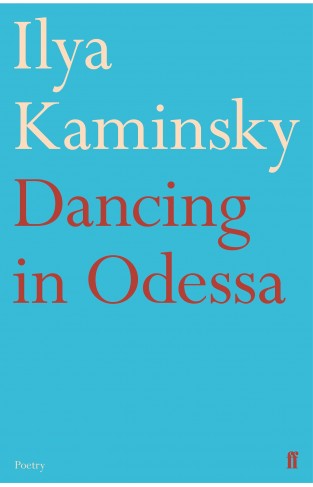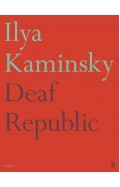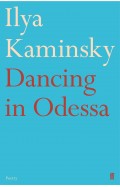Dancing in Odessa
By: Ilya Kaminsky
-
Rs 2,375.75
- Rs 2,795.00
- 15%
You save Rs 419.25.
Due to constant currency fluctuation, prices are subject to change with or without notice.
Described as 'a rich, reverberative dance with memories of a haunted city' (LA Times), the poems of the prize-winning debut Dancing in Odessa by Ilya Kaminsky, author of Deaf Republic, draw on archetype, myth and Russian literary figures. Tightly realised domestic settings are invigorated with a contemporary relevance, humour and torment, and a distinctive, transcendent music.
'With his magical style in English, Kaminsky's poems in Dancing in Odessa seem like a literary counterpart to Chagall in which laws of gravity have been suspended and colors reassigned, but only to make everyday reality that much more indelible. His imagination is so transformative that we respond with equal measures of grief and exhilaration.' The American Academy of Arts and Letters
'Dancing in Odessa by Ilya Kaminsky tops the list because he is one of those rarest of finds in this or any century, a writer who establishes what poetry can be.' The New York Times
Described as 'a rich, reverberative dance with memories of a haunted city' (LA Times), the poems of the prize-winning debut Dancing in Odessa by Ilya Kaminsky, author of Deaf Republic, draw on archetype, myth and Russian literary figures. Tightly realised domestic settings are invigorated with a contemporary relevance, humour and torment, and a distinctive, transcendent music.
'With his magical style in English, Kaminsky's poems in Dancing in Odessa seem like a literary counterpart to Chagall in which laws of gravity have been suspended and colors reassigned, but only to make everyday reality that much more indelible. His imagination is so transformative that we respond with equal measures of grief and exhilaration.' The American Academy of Arts and Letters
'Dancing in Odessa by Ilya Kaminsky tops the list because he is one of those rarest of finds in this or any century, a writer who establishes what poetry can be.' The New York Times
Zubin Mehta: A Musical Journey (An Authorized Biography)
By: VOID - Bakhtiar K. Dadabhoy
Rs 892.50 Rs 1,050.00 Ex Tax :Rs 892.50
The Origins of Political Order From Prehuman Times to the French RevolutioN
By: Francis Fukuyama
Rs 4,045.50 Rs 4,495.00 Ex Tax :Rs 4,045.50
Manning Up: How the Rise of Women Has Turned Men into Boys
By: Kay Hymowitz
Rs 845.75 Rs 995.00 Ex Tax :Rs 845.75
The Obama Syndrome: Surrender At Home War Abroad
By: Tariq Ali
Rs 1,100.75 Rs 1,295.00 Ex Tax :Rs 1,100.75
The Quest For Meaning: Developing A Philosophy Of Pluralism
By: Tariq Ramadan
Rs 1,185.75 Rs 1,395.00 Ex Tax :Rs 1,185.75
The Pakistan US Conundrum Jihadists The Military And The People The Struggle For Control
By: Yunas Samad
Rs 1,185.75 Rs 1,395.00 Ex Tax :Rs 1,185.75
An Enemy We Created: The Myth Of The Taliban Al Qaeda Merger In Afghanistan 19702010
By: Alex Strick van Linschoten
Rs 4,197.50 Rs 8,395.00 Ex Tax :Rs 4,197.50
WikiLeaks: Inside Julian Assanges War on Secrecy
By: David Leigh & Luke Harding
Rs 637.50 Rs 850.00 Ex Tax :Rs 637.50
No similar books from this author available at the moment.
Women Don't Owe You Pretty - The Debut Book from Florence Given
By: Florence Given
Rs 3,225.75 Rs 3,795.00 Ex Tax :Rs 3,225.75
Disney Pixar Coloring Floor Pad - Paperback
By: Parragon Books Ltd
Rs 675.75 Rs 795.00 Ex Tax :Rs 675.75
The Land of Magic Medicines: A Faraway Tree Adventure (Blyton Young Readers)
By: Enid Blyton
Rs 760.75 Rs 895.00 Ex Tax :Rs 760.75
Zubin Mehta: A Musical Journey (An Authorized Biography)
By: VOID - Bakhtiar K. Dadabhoy
Rs 892.50 Rs 1,050.00 Ex Tax :Rs 892.50















-120x187.jpg?q6)





-120x187.jpg?q6)



-120x187.jpg?q6)








